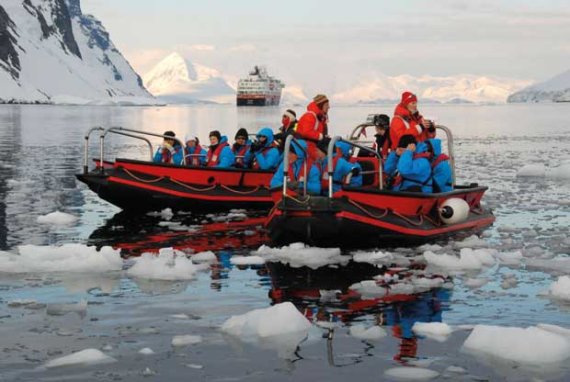Mining and drilling for gas and oil are banned, so Antarctica is not exposed to polluting activities. Unless you see tourism and science as polluting. Because tourists are coming in increasing numbers, with a peak of 45,000 in the 2007-2008 season. In the high season there are also about 5000 scientists on the continent.
Are tourists a big threat to Antarctica?
‘No. Tourism is often seen as a sector with a very big impact, but that is not the case. It is climate change that has far and away the biggest effect on the ecosystem in Antarctica. What is more, tourism does not take any resources away, as fisheries do, for instance. Precisely for this reason, the tourism sector is actually in the lead for putting the brakes on negative impacts. To prevent the introduction of diseases, for example, tourists are required to walk through a bath if disinfectant before going ashore. That has been done for 10 years already, but it is still not standard practice among scientists.’
The book predicts the end of Antarctica as we know it if we keep on going the way we are now. Is more legislation needed?
‘The Environmental Protocol was established in the 1990s as a follow-up to the Antarctic Treaty of 1959. It includes far-reaching agreements on protecting the Antarctic environment. If we carry them out we might be able to cope with many of the threats. But each country interprets it in its own way, making it easy to sidestep the rules. In any case, the legislation is largely reactive and does not sufficiently anticipate new developments.’
Officially Antarctica belongs to no one. Is the lack of a government a problem?
‘In the annual Antarctic consultation, 28 countries sit around the table together to decide the policy. That is a very drawn-out process, which is indeed one of the biggest problems. We need more scope for strategic discussions than currently exists. For example, you could set up committees on certain themes, which could meet several times a year to discuss issues and come up with plans. But in the end it comes down to how important Antarctica is to us. I would like to see serious thought being given to that. The book aims to make a contribution.’

